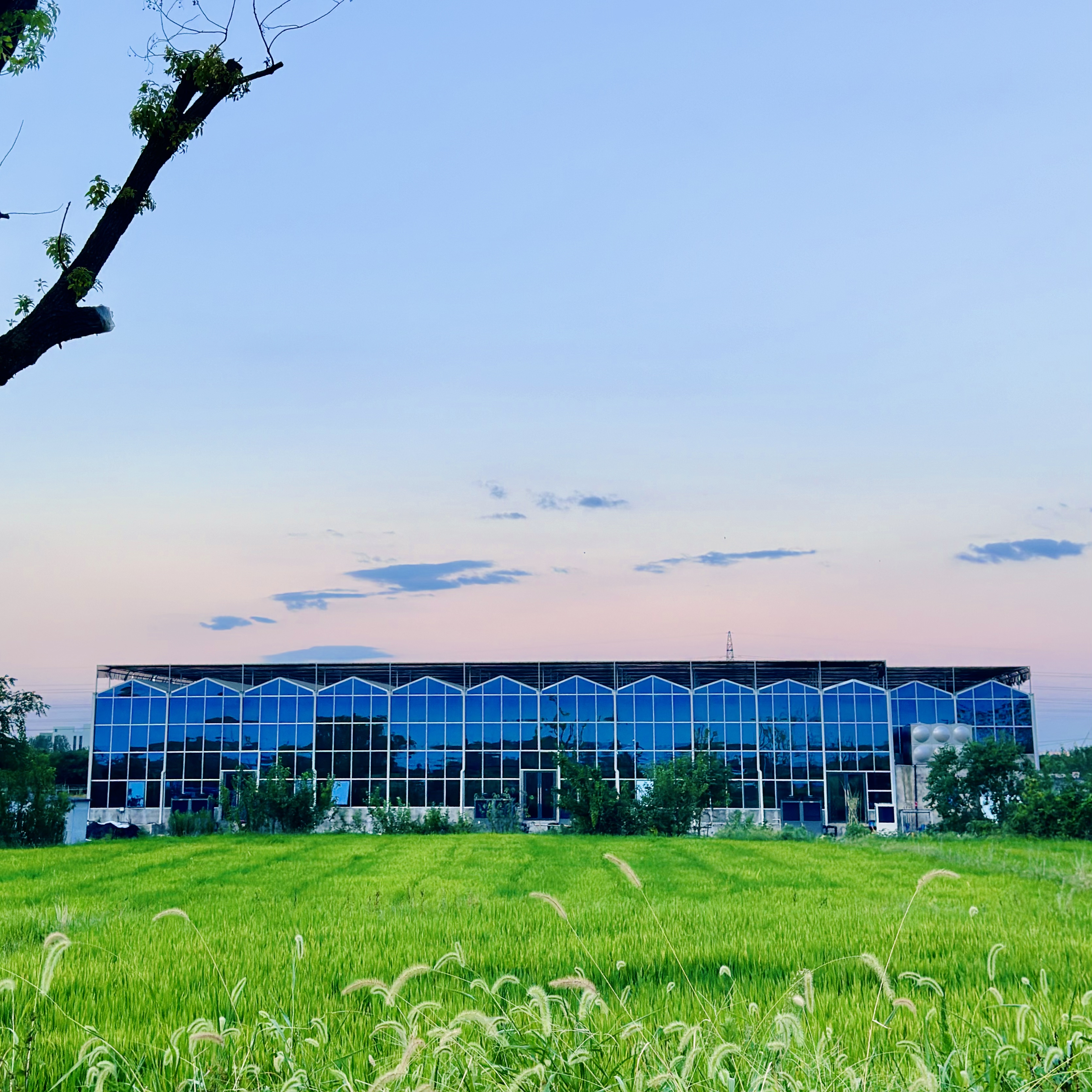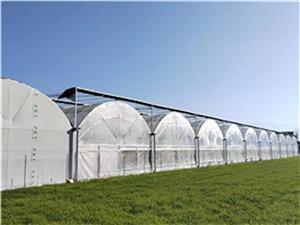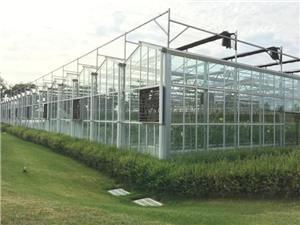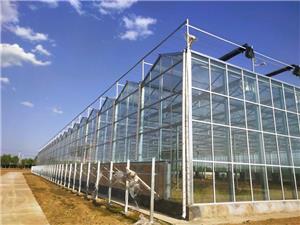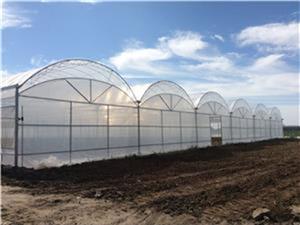Ventilation system in greenhouse
Natural Ventilation
Roof Ventilation system in greenhouse:
Purpose: Allow warm, humid air to escape from the top of the greenhouse.
Operation: Vents can be manually operated or automated with temperature-sensitive mechanisms.
Side Ventilation system:
Purpose: Enable cooler, drier air to enter at the lower levels, promoting airflow throughout the greenhouse.
Operation: Often used in conjunction with roof vents to create a natural convection current.
Louvered Windows:
Purpose: Provide additional ventilation options and can be adjusted to control airflow more precisely.
Operation: Can be manually or automatically operated.
Forced Ventilation
Exhaust Fans:
Purpose: Actively remove warm, humid air from the greenhouse.
Placement: Typically installed in the walls or roof, often at one end of the greenhouse to draw air through from intake vents at the opposite end.
Intake Fans:
Purpose: Draw fresh air into the greenhouse.
Placement: Positioned opposite the exhaust fans to ensure good air circulation.
Circulation Fans:
Purpose: Maintain even air distribution within the greenhouse, preventing hotspots and areas of stagnant air.
Placement: Strategically placed throughout the greenhouse, usually suspended from the ceiling or mounted on walls.
Strategies for Effective Ventilation
Cross Ventilation
Description: Air enters through vents on one side of the greenhouse and exits through vents on the opposite side.
Benefits: Ensures thorough air exchange and helps maintain uniform temperature and humidity levels.
Roof and Side Ventilation system Combination
Description: Utilizing both roof and side vents to create a chimney effect, where warm air rises and escapes through the roof vents while cooler air is drawn in through the side vents.
Benefits: Enhances natural convection and improves overall airflow.
Automated Ventilation Systems
Sensors and Controllers:
Function: Monitor temperature, humidity, and CO2 levels to automatically adjust vents and fans.
Benefits: Ensures optimal growing conditions with minimal manual intervention.
Actuators:
Function: Mechanically open and close vents based on signals from the control system.
Benefits: Provides precise control over ventilation.
Winter Ventilation system:
Goals: Minimize heat loss while maintaining adequate airflow to prevent condensation and disease.
Methods: Use roof vents sparingly and rely more on side vents and circulation fans.
Summer Ventilation:
Goals: Maximize cooling by using all available ventilation options.
Methods: Keep roof and side vents fully open and use exhaust and circulation fans extensively.
Dehumidification:
Methods: Use of dehumidifiers or heating to reduce relative humidity levels.
Importance: Prevents mold, mildew, and other humidity-related problems.
Ventilation:
Role: Proper ventilation helps to maintain lower humidity levels by exchanging humid air with drier outside air.
Supplementation:
Methods: If CO2 levels are supplemented for plant growth, ensure that ventilation is balanced to maintain optimal levels without losing too much CO2.
Ventilation Timing:
Strategy: Ventilate during periods when CO2 supplementation is not active or less critical to maintain efficiency.
Best Practices
Regular Maintenance: Ensure all vents and fans are in good working order and free from obstructions.
Monitoring: Continuously monitor environmental conditions using sensors and make adjustments as needed.
Adaptability: Be prepared to adjust ventilation strategies based on changing weather conditions and plant growth stages.
Energy Efficiency: Consider energy-efficient fans and automated systems to reduce operating costs.
Conclusion
Effective ventilation in a glass greenhouse involves a combination of natural and forced methods, strategic placement of vents and fans, and automated control systems. By implementing these strategies, you can create a stable and optimal growing environment, improving plant health and productivity.
